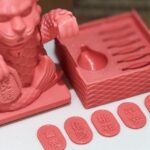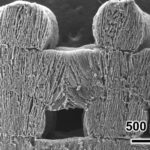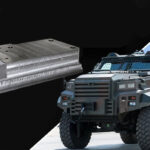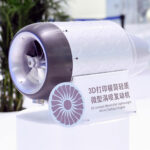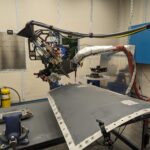Innosys has received US FDA 510k approval for its 3D printed cervical surgical cage, “UniSpace Stand-Alone C Cage”. This device is designed to replace damaged discs in spinal fusion surgery, promoting bone fusion through a biocompatible titanium structure that mimics human bone.
UniSpace features a screw-integrated design, eliminating the need for a separate cervical plate. This reduces surgery time and minimizes incision sites, enhancing patient recovery. The cage employs a dual-locking mechanism to prevent screw loosening, utilizing an automatic elastic band lock and a secondary locking plate for additional fixation strength.

The 3D printing process allows for high design freedom, producing UniSpace in 107 sizes to cater to individual patient needs based on factors like gender and skeletal size. This customization leads to better surgical outcomes compared to conventional machined products. Additionally, the structure is designed to enhance strength while preventing titanium from damaging normal bones.
UniSpace’s approval opens opportunities for Innosys to expand its market presence in the US and globally. The company plans to supply UniSpace in Korea, the US, and Chile starting in August, with further market expansion planned for Central and South America and Asia.
“UniSpace is a product designed in collaboration with local doctors from the development stage to provide optimized treatment,” said Innosys’ CEO, Ju Mi Chung.
“By utilizing 3D printing technology, we have achieved a low-density structure optimized for bone fusion and implemented an automatic screw locking mechanism, enabling faster and more effective treatment outcomes for patients. The US approval allows us to receive preferential benefits when entering global markets, not only in North America but also in Central and South America, Oceania, and beyond, expanding our export opportunities to more countries.”


